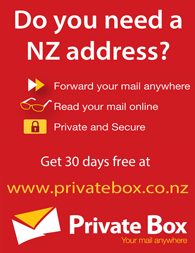Fishing Licences
Every person who wants to go fresh water fishing or game bird hunting must first purchase a licence.
The licence fees are primarily charged to cover the cost of managing the fish and birds and the habitat they depend on. The provision of services to anglers and hunters and advocating their interests is also included in the licence fee.
Licence fees were originally spent on increasing fish and bird populations. The priority changed in the 1960's and became focused on protecting important habitat against development, both in the rural sector and through industry. It was quickly realised that quality habitat produces good numbers of sports fish and game birds.
Habitat advocacy remains the major focus of Fish and Game Councils and a significant percentage of the councils' money goes into advocating habitat protection.
Over the last five or six years an emphasis has also been placed on providing better information and services to anglers and hunters and advocating their interests to the wider community.
How the licence fee is set?
The setting of licence fees is relatively simple. Fish and Game New Zealand add up the budgets of the thirteen councils and divide that figure by the number of licences we expect to sell. This is done by converting all licence sales to adult whole season licence equivalents. The answer is the licence fee.
However we have to take other factors into consideration such as the perceived market value of the licence and how much people are prepared to pay to go fishing and hunting.
What do the licence fees get spent on?
About 17% of Fish and Game New Zealand's $6 million budget is spent on habitat protection. This includes protection and management of land we own as well as land owned by the public. We advocate habitat protection through the Resource Management Act and through water conservation orders. Of the 25 water conservation orders taken out in this country 19 have been promoted by Fish and Game New Zealand or the former Acclimatisation Societies. Fish and Game New Zealand spent $150,000 to ensure the Buller River was granted a water conservation order.
15% of the budget is spent on providing services to anglers and hunters. This includes providing general fishing and hunting information, sign posting, and negotiating access opportunities.
8% is spent on community liaison which is becoming a more important function. It is vital that Fish and Game New Zealand staff spend time talking to the wider community and seek their understanding and support for the work we do and the sports we undertake.
7% is spent on compliance. This does not reflect the true cost of compliance because Fish and Game New Zealand use honorary rangers who give their time free of charge to help and maintain the angling and hunting regulations. It often costs Fish and Game New Zealand more money to prosecute people than is recovered because the fines that are retrieved rarely cover our legal costs.
The cost of licensing is about 12% of the budget. It costs Fish and Game New Zealand $5 for every licence we sell and this includes the production of the licence and the guide books we give out. We also provide a commission to licence agents.
About 10% of the Fish and Game New Zealand budget is spent on planning and financial reporting.
Fish and Game New Zealand fishing or hunting licences can be used in any of the 12 regions. A separate fishing licence is required for the Lake Taupo fishery which is administered by the Department of Conservation.
For more information please contact your local Fish & Game office or the New Zealand Council on (04) 499 4767 or fax (04) 499 4768
Reviews / Comments for Fishing Licences
No reviews have been written write a review now.

